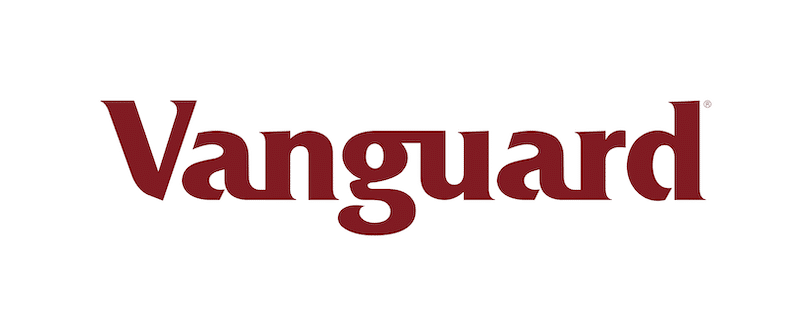
Custodial investment accounts (often called UTMA or UGMA) are accounts managed by an adult on behalf of a minor.
When a child turns 18 or 21, the brokerage will turn over the account to the child. At that point, the money is theirs and they can use it as they wish.
UGMA and UTMA accounts don’t have all the tax and aid advantages of traditional educational savings accounts, but they offer greater flexibility for recipients. Funds inside a UGMA or UTMA can be used for anything from college tuition to a business to a new car.
If you’re a parent or grandparent who wants to transfer wealth to your child, a custodial account could make a lot of sense. This guide helps explain what to look for in a custodial investment account lists some of our favorites.
Before You Open A Custodial Investment Account
Custodial accounts can be a useful way to transfer money to the next generation. But these accounts have some drawbacks. These are a few things to consider before opening a UGMA or UTMA account for your child.
- Can’t take it back - Unlike educational savings accounts, a UTMA is an irrevocable gift. It will be turned over to the account holder at the age of majority in your state. There is no “out” clause if your child is irresponsible.
- May be subject to gift taxes - Minors won’t be taxed if you over-contribute to their account. But gifts over $15,000 per year could be taxed. Learn more about the gift tax.
- Kids can use the money for anything - Once the account is turned over to a child, they can use the funds for whatever they want. They may be prudent, but they may also blow the money on something frivolous.
- Financial aid may be affected - Custodial accounts tend to have an outsized effect on a child’s ability to receive need-based college aid. If the goal is educational savings, other accounts may be better.
Top Features In Custodial Accounts
While every person wants something different in an account, these are some features that make sense to consider.
- Easy to use - Usability should be a foregone conclusion these days. Unfortunately, many brokerages hide information in tough-to-find locations. The brokerages we recommend make it easy to track performance, place trades, and even invest automatically.
- Low fees - Don’t bother paying high fees for your custodial accounts. Accounts that feature no trade fees and low fees on funds (mutual funds or ETFs) are readily available.
- Easy legal compliance - Custodial accounts are accounts owned by minors. Good brokerages will make it easy for parents to accurately file taxes based on their child’s assets.
- Assets available - Some investors prefer broad-based index funds. Others prefer individual stocks or bonds. We did not review any accounts that hold “real assets” or alternatives (like mortgage notes or real estate). However, most of our recommendations offer a variety of investment options.
Best Brokerages For Custodial Investment Accounts
Our top choices for custodial brokerages is very similar to our list of best brokerages overall.
These brokerages feature easy-to-set-up accounts, useful account reporting, and no-cost trades for stocks, ETFs, and mutual funds. They also automatically enroll users in Dividend Reinvestment Programs, so all your money stays invested.
Charles Schwab
This custodial account from Charles Schwab offers $0 minimums, and $0 trades. And if you already have your own Schwab accounts you can manage the custodial account from the same dashboard.
But where Schwab perhaps best stands out is that it offers "Intelligent Portfolios" (robo-advisor portfolios) that come with no advisory fee. These portfolios are monitored daily and automatically rebalanced as needed.
You'll need to invest at least $5,000 in a minor's custodial account before it can become eligible to use the Intelligent Portfolios service. But once you reach that mark, it's an incredibly low-cost way to create a diversified and automatically-managed portfolio of ETFs for your child or grandchild.
E*TRADE by Morgan Stanley
E*TRADE offers $0 minimums and $0 trades for stocks and ETFs. It also has one of the largest number of no-transaction-fee (NTF) mutual funds at over 4,400.
The E*TRADE platform offers some of the best tools for web trading and plenty of teaching tools for kids and teens who want to learn the basics of investing. Robo-advisory service is offered through its "Core Portfolios" which have $500 minimums and 0.30% advisory fees.
Vanguard
You'll be hard-pressed to find a brokerage that offers more low-cost index funds than Vanguard. The firm also has one of the best menus of target-date funds, which could be a great way to invest money in a custodial investment account that you hope they'll use at a specific time (like when they enroll in college).
As with all of the brokers on this list, Vanguard charges no commissions on stock or ETFs. Its in-house mutual funds trade free too. There are no enrollment fees for opening a Vanguard UGMA/UTMA account either.
Vanguard has two wealth management options. The first is a robo-advisor service called "Vanguard Digital Advisor." It has a $3,000 minimum and an advisory fee of 0.15%. "Vanguard Personal Advisor Services" adds one-on-one support from a financial advisor. The minimum is much higher at $50,000 but the annual fee is quite reasonable at 0.30%.
M1 Finance
M1 Finance has long been one of our favorite investing brokerages because you can setup a pie of investments and auto-invest for free. This simple rebalancing feature is a fantastic way to ensure that your asset allocation for the long term is always on-point.
M1 Finance now offers custodial account (UTMA/UGMA) for M1 Plus members. If you're already using M1 Finance for your investments, now you can do the same to help your children get a head start!
Apps To Set Up Custodial Investment Accounts
If you don’t have a large sum to invest, but you want to get started an app may be a good choice for you. These apps help users to invest small sums of money, to help their portfolios grow over time. They can also be useful tools to help teach kids about money.
Fabric UGMA
Fabric is traditionally known for its life insurance products, but it recently launched a UGMA account that's a good alternative to a 529 plan. This account allows you to save in a taxable account for your children's futures.
This account does have a monthly fee of $3/mo for one account, and $5/mo for a family with multiple accounts (no limit even if you have 8 kids). This account also allows personalized gifting, which is a great way to get family and friends to help save!
Acorns Early
Acorns Early sets up a custodial account and allows parents to take advantage of micro-investing (small increment investments). The service is built into the Acorns Premium plan which costs $12 per month for the whole family.
Paying $12/mo ($144/yr) can be a steep fee for relatively small balances. However, Acorns can get users into the habit of saving for their kids. Plus, keep in mind that the one flat fee covers your entire family. There's no extra cost for adding multiple kids.
Don’t Forget To Consider Alternatives
While the custodial investment accounts listed above offer great value, they aren’t your only account choices. If you're specifically looking to save for a child's college, then an educational savings account like a 529 plan or a Coverdell ESA may make more sense. Both provide solid tax advantages when used towards qualified educational expenses.
Even if you don't expect that the money you save for a child will be applied towards education costs, a custodial account may not always be the best choice. Instead, you may prefer to hold funds in your own account. That way you can give them as a gift whenever you feel confident that the child is ready to use the money responsibly.
Saving money for your kids future is an admirable decision. But before you dive, carefully weigh the pros and cons of each of the savings vehicles that are available to you to find the one that provides the best blend of features, costs, tax advantages, and flexibility.

Robert Farrington is America’s Millennial Money Expert® and America’s Student Loan Debt Expert™, and the founder of The College Investor, a personal finance site dedicated to helping millennials escape student loan debt to start investing and building wealth for the future. You can learn more about him on the About Page or on his personal site RobertFarrington.com.
He regularly writes about investing, student loan debt, and general personal finance topics geared toward anyone wanting to earn more, get out of debt, and start building wealth for the future.
He has been quoted in major publications, including the New York Times, Wall Street Journal, Washington Post, ABC, NBC, Today, and more. He is also a regular contributor to Forbes.
Editor: Clint Proctor Reviewed by: Ashley Barnett






